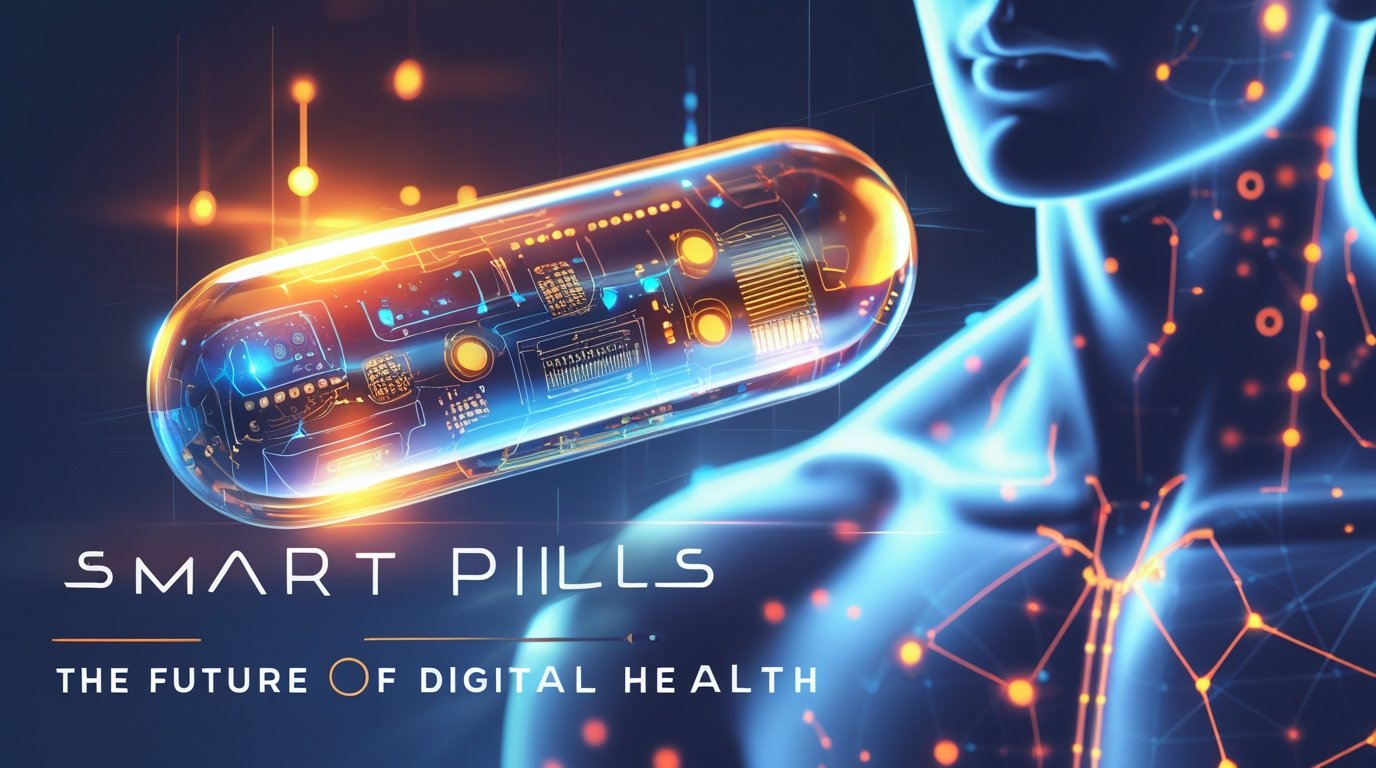My dad was terrible at taking his pills. He’d swear he did. The bottle would be out. But you could never be sure. After his second heart scare, the doctor sat us down and said, “We can’t help him if he doesn’t take the medicine.” It was a helpless feeling. How do you manage what you can’t see?
Then I read about a pill that could text you. It sounded like a joke. But it’s not. It’s called a smart pill, and it’s the first real step toward turning medicine from a guessing game into a conversation.
It’s Not Magic, It’s a Sensor:
Forget futuristic robots. The tech is almost boringly simple. It’s a microscopic sensor, often made of copper and magnesium, basically, food-grade metals. It’s embedded in a regular pill.
When you swallow it, your stomach acid acts like a battery activator. It powers the sensor just enough for it to send a tiny Bluetooth signal, like a single, weak “I’m here!”, to a patch on your skin or your phone.
That’s it. No lasers, no nanobots. Just chemistry and a very short-range text message confirming the pill was taken. The genius is in the simplicity.
This Isn’t About Spying. It’s About Certainty:
I know what you’re thinking: “Big Brother in my stomach?” I thought it too. But then I saw it from my dad’s perspective.
For him, it wasn’t surveillance. It was freedom. It was a way to prove to himself, to me, and to his doctor that he was doing the right thing. That record of “Yes, taken at 8:02 AM” removed all the anxiety and arguments. For the first time, we had proof. For people managing serious conditions, that certainty is everything. It turns a silent, solitary act into a verified one.
The Weird And Amazing Future:
This is where it gets wild. The same tech that confirms a pill was taken is being developed to become an internal data scout.
Imagine a pill that could:
- Measure your core temperature from the inside to detect post-surgery infections days earlier.
- Sample your gut bacteria to see if your probiotic is actually working.
- Detect minute traces of blood for early warning of ulcers.
We’re talking about getting medical data from a place we’ve never had access to before. It’s like getting a weather report from the center of a storm instead of guessing from the outside.
The One Thing That Has to Happen:
None of this works without ironclad privacy rules. And I mean ironclad. This data can’t be sold. It can’t be used by insurance companies to penalize people. It has to belong to the patient, period. The tech is ready. The trust isn’t. And it has to be built first.
The Bottom Line:
This isn’t about forcing people to be compliant. It’s about giving them the tools to be empowered. It’s for the dad who forgets, the patient who isn’t sure if the treatment is working, and the doctor who needs better data.
It turns a pill from a passive chemical into an active partner in health. And that’s a future worth building carefully, and ethically, together.
FAQs:
1. Do you poop the sensor out?
Yes, the sensor is completely inert and passes harmlessly through your digestive system. You don’t even notice it.
2. Is this real or just a concept?
It’s real. The first one was approved by the FDA back in 2017 for tracking medication adherence.
3. Could my insurance company see this data?
This is the biggest ethical debate. Right now, strong privacy laws like HIPAA protect it, but we need new, specific laws to keep it that way.
4. What if I don’t have a smartphone?
The systems usually use a small wearable patch that receives the signal and can store the data, which can then be synced later.
5. Is it expensive?
Right now, yes. The digital version costs significantly more than a generic pill. The price will need to come down for widespread use.
6. Can I turn the tracking off?
Yes. The system is opt-in. You choose to use the patch and the app. It’s a tool for consenting patients, not a mandate.

Leave a Reply